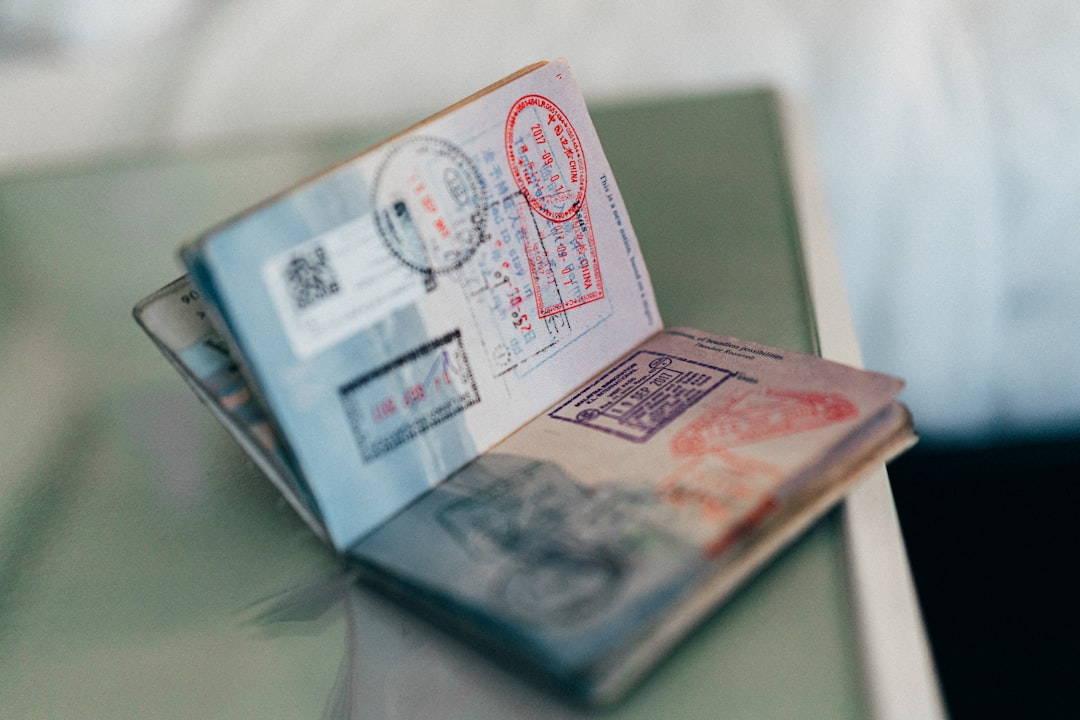Taiwan Tightens Grip: New Rules Expand Scope of China Household Registration Restrictions
New interpretation of Cross-Strait Act aims to clarify status and protect national security amidst rising concerns.

Taipei, Taiwan – April 23: The Mainland Affairs Council (MAC) of Taiwan has recently issued a revised interpretation of the Cross-Strait Act, significantly broadening the scope of restrictions related to Chinese residency.
Under the revised guidelines, obtaining a permanent residence certificate issued by the Chinese authorities now also constitutes a violation, potentially leading to the loss of "Taiwan status."
Article 9-1 of the Act Governing Relations between the People of the Taiwan Area and the Mainland Area (also known as the Cross-Strait Act) previously stated that individuals from the Taiwan Area are prohibited from holding household registrations in the Mainland Area, with violations resulting in the loss of Taiwanese rights and status.
In the new interpretation, released last Wednesday, the MAC clarifies that "having [Chinese] household registrations" under the Cross-Strait Act now encompasses holding Chinese ID cards and permanent residence certificates. The latter is an intermediate identification document that allows holders to apply for a Chinese ID card.
The MAC explained that the Chinese authorities use "permanent residency" as a foundation for legal and administrative management. Therefore, an individual with a permanent residence certificate from China's public security authority is eligible to register for a Chinese household registration.
This allows them to apply for a Chinese ID card, mirroring those held by residents of the Mainland Area, according to the MAC.
The interpretation seeks to maintain the "principle of maintaining a single status for individuals across the Taiwan Strait," and to avoid "status confusion" that could destabilize cross-strait interactions and social order, stated the MAC.
The council added that this interpretation is based on the "legislative intent, regulatory purpose, and contextual meaning" of the Cross-Strait Act.
By including permanent residence certificates, the new interpretation broadens the existing scope, which previously focused on Chinese household registrations, ID cards, and passports.
However, it is important to note that, as of Wednesday, holding a Chinese residence certificate is not considered a violation of the Cross-Strait Act, nor its interpretation.
MAC head Chiu Chui-cheng (邱垂正) stated in mid-February that the council was evaluating regulations to strengthen oversight of Taiwanese citizens obtaining Chinese residence certificates, permanent residence certificates and ID cards due to the rising number of such cases.
Chiu explained that potential amendments to the Cross-Strait Act would serve to inform the public that obtaining "various identification documents in China carries multiple risks."
Since February, the MAC, the Ministry of Civil Service, and the Directorate-General of Personnel Administration have directed government agencies to investigate whether active military personnel, civil servants, and public-school teachers possess any China-issued documents.
In mid-March, President Lai Ching-te (賴清德) introduced 17 key strategies to address "five major national security and united front threats" facing Taiwan.
One of these strategies involves the MAC and other agencies reviewing identification documents that Taiwanese military personnel, civil servants, and public-school teachers may have obtained in China. This is designed to prevent and deter united front operations under the guise of "integrated development," according to a statement from the Presidential Office.
Other Versions
Taiwán estrecha el cerco: Las nuevas normas amplían el alcance de las restricciones al registro de hogares chinos
Taïwan resserre l'étau : De nouvelles règles élargissent la portée des restrictions imposées par la Chine en matière d'enregistrement des ménages
Taiwan Memperketat Cengkeraman: Peraturan Baru Memperluas Cakupan Pembatasan Pendaftaran Rumah Tangga di Tiongkok
Taiwan stringe la morsa: Nuove regole ampliano la portata delle restrizioni alla registrazione delle famiglie cinesi
台湾が締め付け強化:新ルールで中国の戸籍制限範囲が拡大
대만, 규제를 강화하다: 새로운 규정으로 중국 가구 등록 제한 범위 확대
Higpitan ng Taiwan: Pinalawak ng mga Bagong Panuntunan ang Saklaw ng mga Paghihigpit sa Pagpaparehistro ng Sambahayan ng Tsina
Тайвань ужесточает контроль: Новые правила расширяют сферу действия ограничений на регистрацию китайских домохозяйств
ไต้หวันกระชับอำนาจ: กฎใหม่ขยายขอบเขตข้อจำกัดการลงทะเบียนครัวเรือนจีน
Đài Loan Siết Chặt: Quy Tắc Mới Mở Rộng Phạm Vi Hạn Chế Đăng Ký Hộ Khẩu Trung Quốc
